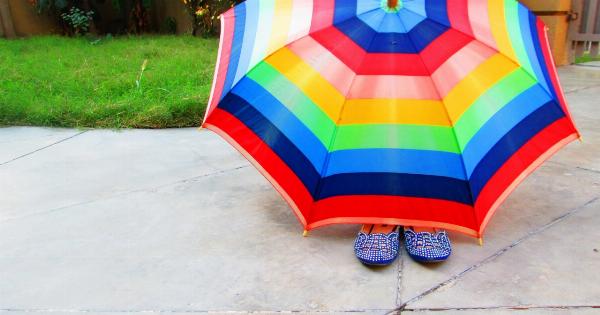Mosquitoes are annoying and can cause some serious health issues such as West Nile Virus. These small insects can easily enter into your house, and ruin your day. It could be dangerous if you do not take proper precautions.
In this article, we will discuss some effective ways to prevent mosquito bites and protect yourself against West Nile Virus.
What is West Nile Virus?
West Nile Virus (WNV) is a viral infection that is mainly spread by infected mosquitoes. The virus can cause various types of illnesses ranging from fever to severe neurological disease.
The West Nile Virus was first identified in Uganda in 1937 and recently came to the US around 1999.
Symptoms of West Nile Virus
Most people who are infected with West Nile Virus do not develop any symptoms. However, some people can show symptoms that include:.
- Fever
- Headache
- Body Aches
- Joint Pains
- Vomiting
- Diarrhea
- Rash
- Swollen Glands
In severe cases of West Nile Virus, symptoms can include:.
- High Fever
- Neck Stiffness
- Disorientation
- Coma
- Tremors or Seizures
- Paralysis
Prevention of Mosquito Bites and West Nile Virus
In order to prevent mosquito bites and reduce the risk of West Nile virus, there are various steps you can take to protect yourself.
Use Mosquito Repellent
Mosquito repellent is an effective solution to prevent mosquito bites. You can use commercially available mosquito repellents that are available in different forms, including creams, lotions, sprays, and sticks.
The most effective mosquito repellents contain ingredients such as DEET, Picaridin, Oil of Lemon Eucalyptus, or IR3535.
Avoid Going Outdoors During Peak Mosquito Hours
Mosquitoes are more active during dusk and dawn. These are the hours when you are most likely to get bitten. It is better to avoid going out during these hours if possible. If you do go out, make sure to take extra precautions to avoid mosquito bites.
Wear Protective Clothing
Wearing protective clothing can also help to prevent mosquito bites. Wear long-sleeved shirts, pants, and socks while going outside. This will reduce the amount of skin exposed to mosquitoes. You can also treat your clothing with a permethrin spray.
It is an insecticide that is safe to use on clothing and makes them resistant to mosquitoes.
Use Mosquito Netting over Your Bed
Mosquito netting is also an effective way to prevent mosquito bites while you sleep. You can use netting that is treated with an insecticide. This will provide additional protection against mosquito bites.
Remove Standing Water
Mosquitoes breed in standing water. By removing the standing water from your home or surroundings, you are reducing the number of breeding grounds for mosquitoes. This will reduce the population of mosquitoes around your house.
Make sure to empty any bird baths, flower pots, or buckets that may hold standing water.
Install Screens on Windows and Doors
Installing screens on your windows and doors can also prevent mosquito bites. Make sure the screens are in good condition and have no holes. This will keep the mosquitoes out while you are inside.
Use Mosquito Traps
Mosquito traps are a popular way to reduce the number of mosquitoes around your home. There are various types of mosquito traps available that use different methods to attract and kill mosquitoes.
These traps typically use light, heat, or carbon dioxide to attract mosquitoes and then kill them.
Conclusion
Mosquito bites are annoying and can cause some serious health issues. By following the above tips, you can reduce the likelihood of getting bitten by mosquitoes and protect yourself against West Nile Virus.
By taking these precautions, you can stay safe and enjoy the outdoors during mosquito season!.




























